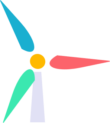BVSSH: Better Value Sooner Safer Happier by Jonathan Smart. What are the outcomes of Agile and the patterns for a successful transformation?
BVSSH stands for Better Value Sooner Safer Happier, which are the primary outcomes of an Agile transformation as described in the book Sooner Safer Happier: Antipatterns and Patterns for Business Agility by Jonathan Smart.
